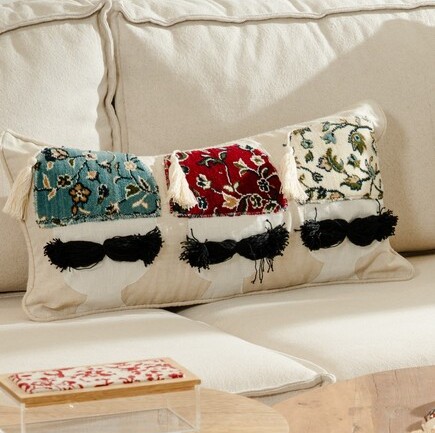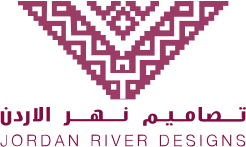Holy Blessings
Ramadan Collection

Who we are
Chaired by Her Majesty Queen Rania Al Abdallah, the Jordan River Foundation (JRF) is a non-profit, non-governmental organization established in 1995 with a focus on child safety and community empowerment. Driven by values of social justice, impactful interventions to alleviate poverty, and socio-economic empowerment focusing on women and youth, JRF implements various programs to achieve its mission of transforming Jordanian communities. It has been a major player in Jordan’s social and economic development, bringing forth over 20 years of experience to local community empowerment and child safety.
Building Social Enterprises
JRF strives to create sustainable economic opportunities for local community women and female refugees by capitalization on their potential as independent breadwinners within their families. There has been an immense interest from women to participate in JRF’s social and economic empowerment programs, especially in the fields of entrepreneurship, culinary arts and handicrafts. These programs are particularly designed to leverage their employability and social skills, as well as their business acumen.

Our Projects

Al Karma Embroidery Center
Established in 1996 in Jabal Al Natheef, Al Karmah Embroidery Center employs local women artisans who produce traditional and contemporary handmade embroidery items, including everything from home furnishings, to gifts, to fashion accessories. Set up to support women who rely on embroidery for a living, the project also aims to maintain and promote the heritage of handicrafts, offering a variety of products representing Jordan’s visual allure.
Bani Hamida Weaving Project
Launched by Save the Children in 1985, the Bani Hamida Weaving Project became part of JRF in 1998. Reviving an otherwise impoverished region, the project revamped the long celebrated tradition of Bedouin weaving, and helped maintain the social fabric of the Makawir area. The project also leveraged the living conditions of the area’s local community. Today, women from 13 different villages are helping revive and sustain the art and culture of Bedouin rug making, while contributing to their families’ livelihoods. Wooden spindles and floor looms are used to produce quality wool rugs that have gained worldwide recognition for their ingenuity and quality.


Wadi Al Rayan Project
Established in 1997, the Wadi Al Rayan Project has revolutionized the use of cattail reeds and banana leaves as raw manufacturing materials, which were previously burnt and disposed of, posing as an environmental hazard to the Wadi’s inhabitants. Today, cattail reeds and banana leaves are used to produce handwoven environment-friendly products, including baskets, coasters, mats, among other unique home and office accessories.
IKEA & JRF
JRF has partnered with IKEA to empower Syrian refugees and local community women through a series of exquisite handicraft projects capturing Jordan’s tradition and heritage. The initiative helps create social and economic sustainability across host communities, offering local women and Syrian refugees jobs to produce handmade carpets and embroidery items, sold exclusively by IKEA, locally and regionally.





